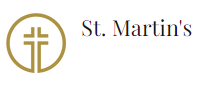The Healing Sacraments
When Jesus healed someone in the Gospels, he almost always included the forgiveness of sin with a commandment to go and sin no more. We shouldn’t conclude that this means that our personal sin causes sickness- or worse that God punishes people by inflicting them with some illness. But, this does point to the holistic way that God sees us: the salvation and healing that God offers us is for both body and soul.
The Sacrament of Unction is a sacrament of healing in which a priest anoints a sick person with oil, and lays hands on them with the prayer of faith, asking God’s healing grace and love to be present with the sick person. As late as the mid 20th century this sacrament was only given as one neared death, as part of last rites. But the liturgical renewal of the late 20th century saw the recovery of this sacrament to its biblical origins, in which any sick person could ask for healing grace through this sacrament at any time. It is important to remember that healing does not always mean cure. Yet, we believe that God’s love is always transforming us and preparing us for life eternal.
The Sacrament of Reconciliation sometimes referred to as Confession, is a sacrament of healing for the soul. The earliest Christians saw sin as a sickness of the soul. The sacraments, particularly Baptism and the Holy Eucharist were seen as the medicine of immortality- the cure for sin. The Church has always believed that after baptism all of one’s sins are forgiven. But the question arose, “what happens when one sins after baptism?” The Sacrament of Reconciliation evolved as a means of offering absolution of sin, and spiritual counsel for those who sinned after baptism. It is rooted in the power that Jesus gave the Apostles to forgive sins. When a priest is ordained, this authority is given to the priest.
There is a General Confession at every Mass, and the priest absolves the sins of the penitent then. We, as Anglicans, following the teachings of the Apostle Paul, also believe that one may confess their sins directly to God through Jesus Christ and obtain mercy and forgiveness. But sometimes, it is helpful to confess one’s sins to a priest. This is helpful when one needs to hear the words of absolution when one needs or desires counsel and prayer, or when one’s conscience needs to find relief. In the Episcopal Church, this sacrament is always available to anyone who needs it, but no one is ever forced or coerced into making a confession. Of course, one’s confession remains under the stole of the priest, in total secrecy, and can never be revealed to another person (unless you confess that you are abusing a child, in which the Church requires the priest to report this to the authorities).
